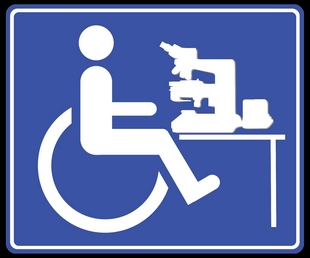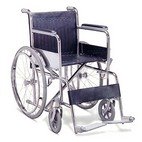Tone
 No, not that knob on your guitar or stereo system. Not even the reference to "toned" athletes or body builders. No, I'm referring to 'Paralytic Tone'.
No, not that knob on your guitar or stereo system. Not even the reference to "toned" athletes or body builders. No, I'm referring to 'Paralytic Tone'.Shortly after coming out of my post surgical 'fog', I noticed a tremendous discomfort bordering on pain whenever I coughed. It felt as if my chest was wrapped with elastic bands. Could my muscles have deteriorated and shortened in such a short time post injury? A half year later, after I began to regain voluntary movement, I noted that the tightness remained. I thought that those muscles that had not been used over the last six months would now stretch out with my increasing movement. I had mentioned this tightness to various health care professionals/physiotherapists in hopes of obtaining specific exercises to counter this unpleasant tension. No exercises or explanations were offered however I noticed the word 'tone' used when talking of my condition. Internet searches offered little more.
My simplistic understanding, which I gathered over time was that when the spinal cord is damaged, the injury causes the brain to send signals (whether different or increased) to the muscle groups involved and tells them to contract or clench more that in the uninjured state. As a result, the muscles are continuously 'turned on' to a greater degree and the resulting tension is referred to as 'Tone' or 'Paralytic Tone'. (My apologies to any Neurophysiologists out there as a proper explanation was never clear or forthcoming from my health care providers.) The result is this continuous tightness in the muscle groups controlled from the injured area of the spinal cord. As my injury level was at T-5, the damage was high enough up to cause my thoracic (chest) muscles to continuously clench. The result is this sensation of having my rib-cage wrapped in rubber. The sensation is outside of the ribs so breathing is unimpeded. The tightness is most noticeable on rising in the morning and although it can be somewhat loosened with stretching, it never approaches feeling normal and re-tightens quickly if I relax for any period of time. The tightness is most noticeable when twisting at the torso, reaching and when those rib cage muscles are stretched to their limit with a very deep inhalation.
In my situation, this tone presents itself the most around my chest and in my calves (gastrocs & soleus muscles) although I suspect it applies to every muscle group below my injury level. The calf muscles are so tight they pull on the achillie's tendon making it difficult for me to keep my heels on the ground. When standing, if not stretched out beforehand, the raised heels have me tipping backwards. This is what the Botox was suppose to address but again, my current physiotherapist feels that the toxin had done very little to block the nerves activating these muscles and have them relax to where my heels come down and my stance is more normal. Even with the Botox, my calves are as hard as petrified wood- repeated stretches and increaced walking have not loosened them and I]ve had too few massage sessions to see if this therapy might loosen them to any degree. As mentioned in an earlier post, my physiatrist (Doctor) claims that studies have never shown massage therapy to have positive effect on 'tone' tension.
It is my belief that this very 'tone' muscle tension is responsible for my sciatic nerve pain. Even after extensive physiotherapy and exercising it seems when I purposely tighten or clench my muscles, my left lower back seems to tighten more vigorously than the right. This asymmetrical response is probably due to the initial injury not being entirely symmetrical and with greater 'tone' on the lower left back muscles, the increased tension pulls my left hip out of alignment. It seems that however much I exercise and stretch out those muscles, the permanent 'tone' always pulls them back out of place to aggravate the sciatic nerve.
So, this constant tightness is a direct result of the injury and resists any attempt to be stretched out. Any give that occurs through exercise or stretching quickly retracts when resting. The drug Baclofen is taken to minimize this tightness and has some effect. While I'm not at the maximum dosage, I take enough drugs and don't wish increase this concentration and add to the chemical soup already in my system.
I now recognize that the condition is permanent and that both the sciatic nerve pain and the neurogenic pain are to be endured daily for the remainder of my life.







.jpg)

1 comment:
1 in 3 Women who had a baby wet themselves
Incontinence could be urinary incontinence and faecal incontinence. Incontinence is the inability to control micturition resulting in the loss of urine. These dysfunctions are caused by pregnancy & childbirth,poor pelvic floor muscle function,constipation,poor fluid & toileting habits,chronic cough,obesity, strenuous sports, aging & menopause ,neurological conditions like MS and stroke Bladder Disorders / Bladder Dysfunction
Womens Health Clinic in Melbourne
Post a Comment